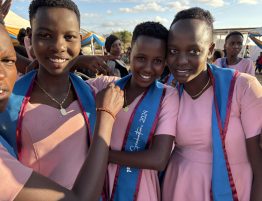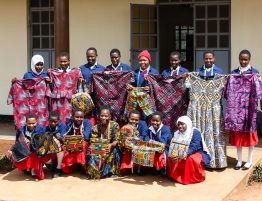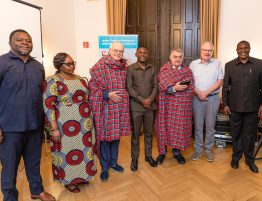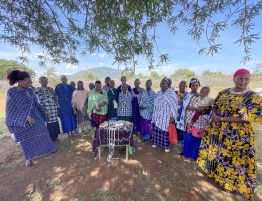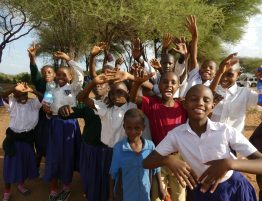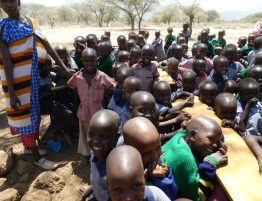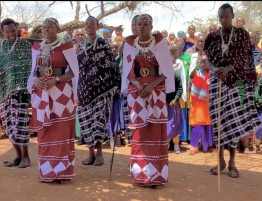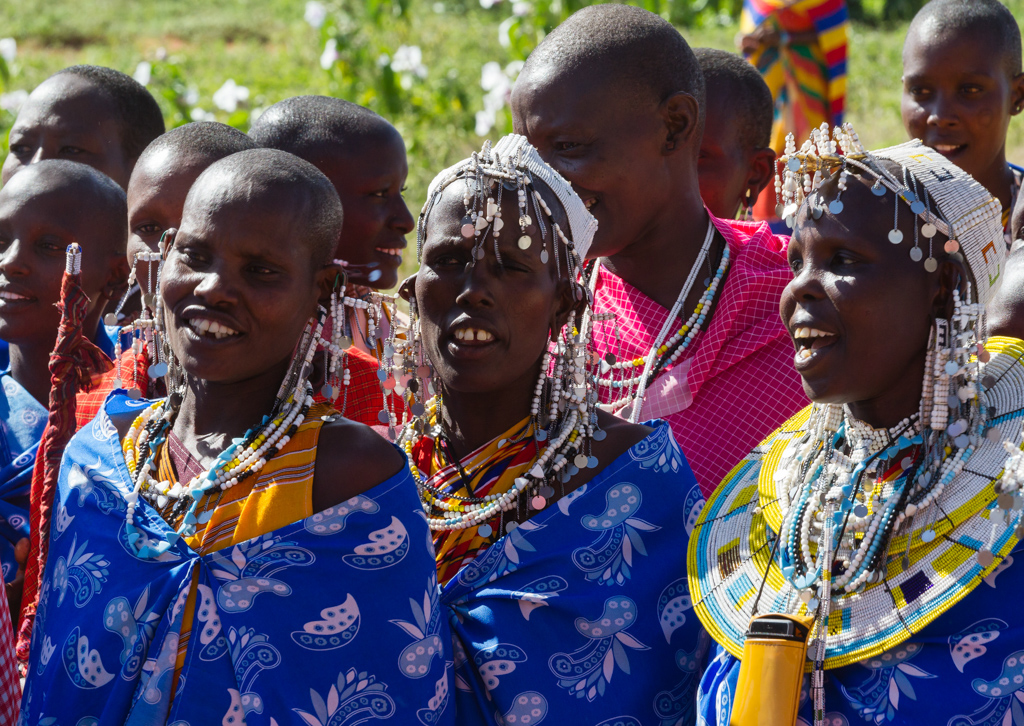
Basic Information on Women Empowerment at ECLAT
We would like to dedicate this information letter to the women empowerment at ECLAT. When we talk about the role and position of women in other cultures, we as Europeans must be careful not to judge and condemn according to our own standards – even if conditions are incomprehensible or seem unacceptable to us. “I know what is good for you” has rather neo-colonial features and is certainly not the right way. We, in upendo too, must be careful not to export our values – even if only unconsciously. This is especially true for ECLAT’s women empowerment among the Maasai. We are happy to support the work of Philomena who, as a Maasai woman, wants to change the position of women in her homeland step by step together with her co-workers. Of course, we discuss her work with her, but in the end the fundamental decisions have to come from ECLAT and not from us. Fortunately, there are other local organisations in Tanzania involved in women empowerment from which ECLAT can learn and which can learn from ECLAT.
The ECLAT Women Empowerment
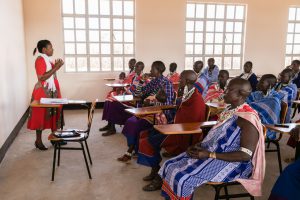
Lessons for a women’s group at the women’s centre
Philomena founded ECLAT’s women empowerment a few years ago and presently leads it. This includes the supervision of 75 women’s groups in the villages of the district; groups which have been formed in the last few years. After all, that is clearly more than 2000 women. The groups are visited in their villages by ECLAT staff to discuss their experiences and problems. Almost all of the groups have now received a micro-credit which they can use to learn to manage their own businesses. They find it difficult to suddenly have their own money and also to be successful with it. Some groups have economic success, others hardly any. ECLAT also has to learn to advise and support them. This is not an easy task and the most immediate approach is to use the money in the way the Maasai traditionally do, i.e. to breed cattle, thus exposing the women’s commitment to the well-known risks such as the lack of fodder at the end of the dry season.
For the past two years, each week one of the women’s groups has been meeting at ECLAT’s women empowerment seminar centre to be trained by the two teachers on issues important to them and to reflect together on the group and its success or failure. ECLAT has to constantly adapt the content of these seminars as well as the meetings in the villages to new developments and experiences in order to optimise the work.
Catherine’s Task and Role
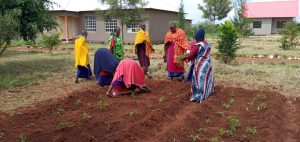
Growing vegetables is also on the curriculum
Catherine Maguzu has been working at ECLAT for several years. She is a well-educated social scientist and experienced in women empowerment, even though she is not Maasai herself. She lives in Arusha with her husband and children. Empowering women is a matter close to her heart and she is accepted and welcomed by all as a counsellor. Besides other tasks at ECLAT, she accompanies and supervises the women empowerment as a close confidant of Philomena. The processes in women empowerment need continuous adjustments, which need to be carefully analysed and considered. We have asked Catherine to write something fundamental about women empowerment for this newsletter.
Women Empowerment and Development – Successful Methods in ECLAT Projects
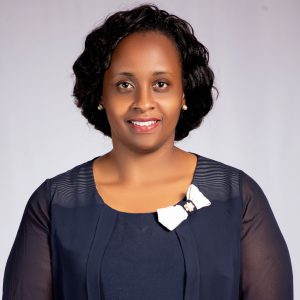 ECLAT women empowerment is primarily aimed at Maasai women. Social norms and structures and traditional role models often prevent them from being able to develop freely and to participate in political, social and economic life on an equal footing. Through (consciousness-raising) education, women will be empowered and their opportunities for action expanded. It is important to include men (fathers, brothers, partners) and to raise their awareness of the issue.
ECLAT women empowerment is primarily aimed at Maasai women. Social norms and structures and traditional role models often prevent them from being able to develop freely and to participate in political, social and economic life on an equal footing. Through (consciousness-raising) education, women will be empowered and their opportunities for action expanded. It is important to include men (fathers, brothers, partners) and to raise their awareness of the issue.
The establishment of women’s groups is an important framework for this educational work. Good social networking within the groups creates the basis for trust based cooperation with the aim of equipping women with the knowledge, skills and self-confidence necessary to participate in the development process in a well-informed and self-determined manner. Women’s literacy is an important key to improving health, nutrition and education in society and empowering women to participate in decision-making processes in society.
Capacity building should pay special attention to the needs of women to ensure that their skills and experience are fully utilised in decision-making at all levels. In addition, adult learning principles will be applied in training, with practical sessions complementing theory sessions.
Promoting new unconventional roles for women helps to change mindsets, values and norms. The creation of role models takes place throughout the programme. Training women as community resource persons or training of trainers in village communities supports the emergence of new role models, thus challenging confining stereotypes. Women become change agents and actors in the community.
This is also helped by teaching them the skills to earn an income beyond traditional occupations, and thus to achieve economic self-sufficiency. The proportion of small and medium-sized enterprises owned by women is an indication of the change that is taking place, and thus of women’s equal access to the labour market and social security systems.
ECLAT’s educational work is complemented by the provision of micro-credits. The concept of the Village Savings and Loans Association has proven to be very helpful in strengthening solidarity and discipline among group members and in promoting a savings culture among women. It ensures that they have equal and increased control over their financial resources and access to financial services.
Another foundation of ECLAT’s women empowerment is the provision of micro-credits to groups that are officially registered to support their small businesses. Microfinance support to women’s groups should always be preceded by training in simple business management.
Professional monitoring ensures a continuous comparison of the of the actually achieved learning / development goals with the original programme goals and the resources used to achieve them, thus enabling the necessary adjustments to be made.
Last but not least, close cooperation with regional government authorities and government advisors as well as with local village leaders is crucial, as they can act as gatekeepers to restrict women’s access to resources. Men should be involved in the women’s programme from the beginning so that they understand the activities and benefits and can support the women. Among the Maasai, the laigwanan is a highly respected leader in the village community. He and the men as a whole have a vital interest in ensuring that the activities planned for the success of the programme are actually carried out.
Catherine Maguzu
German version: Marita Sand
Photos: Rüdiger Fessel 2016/2017 (1,2), ECLAT 2021 (3)


